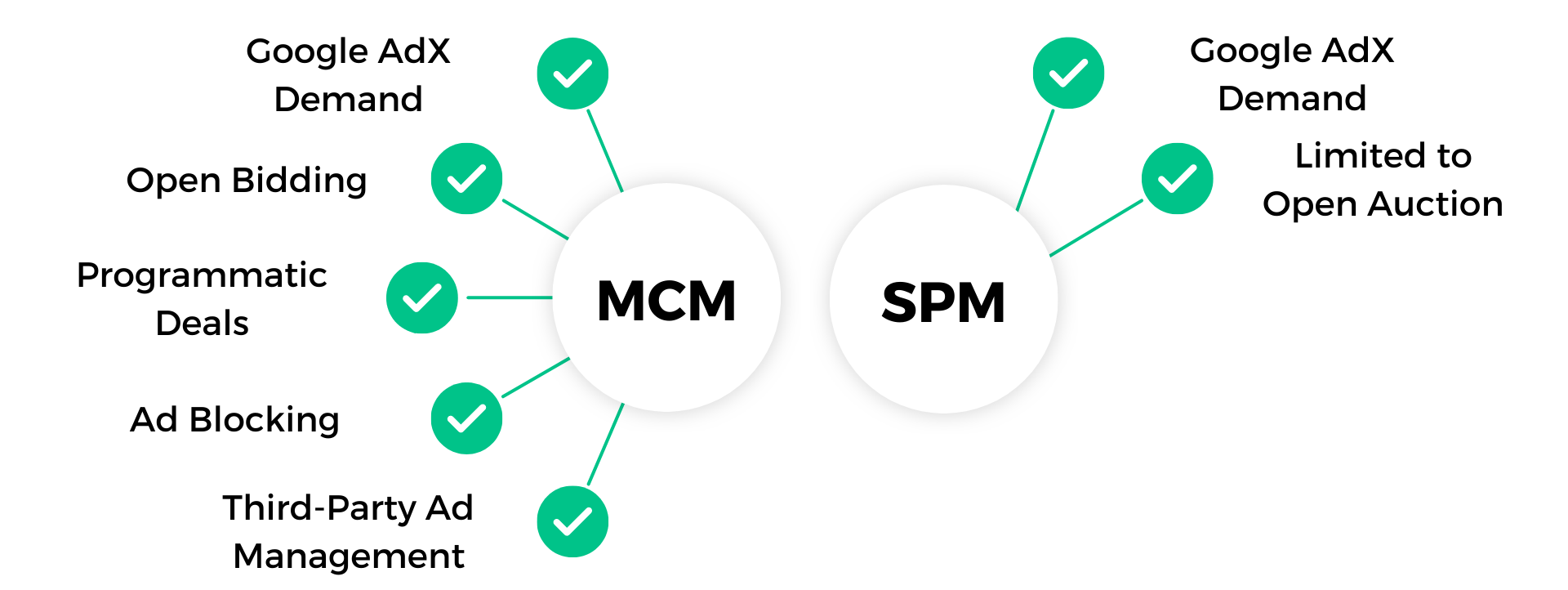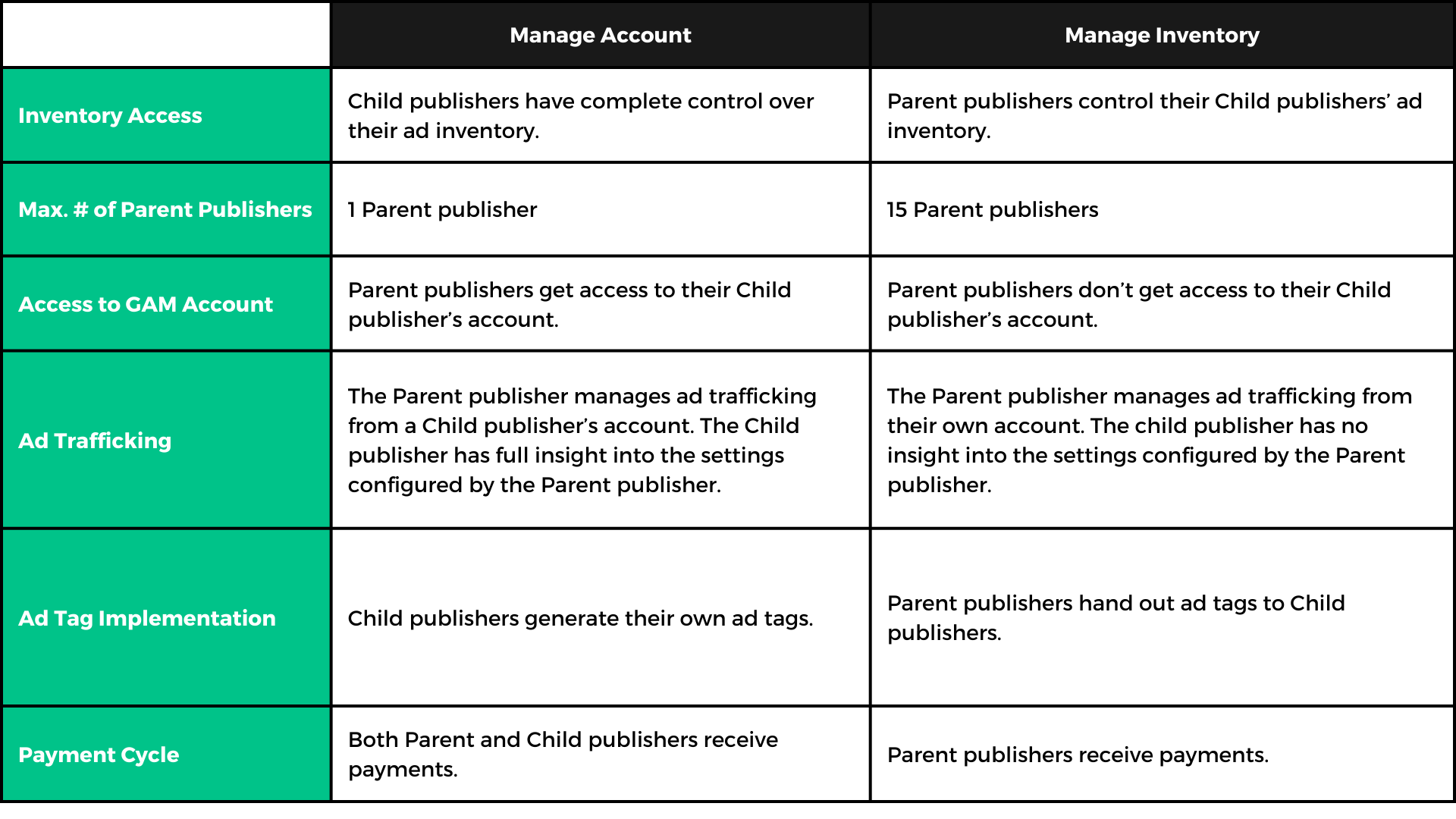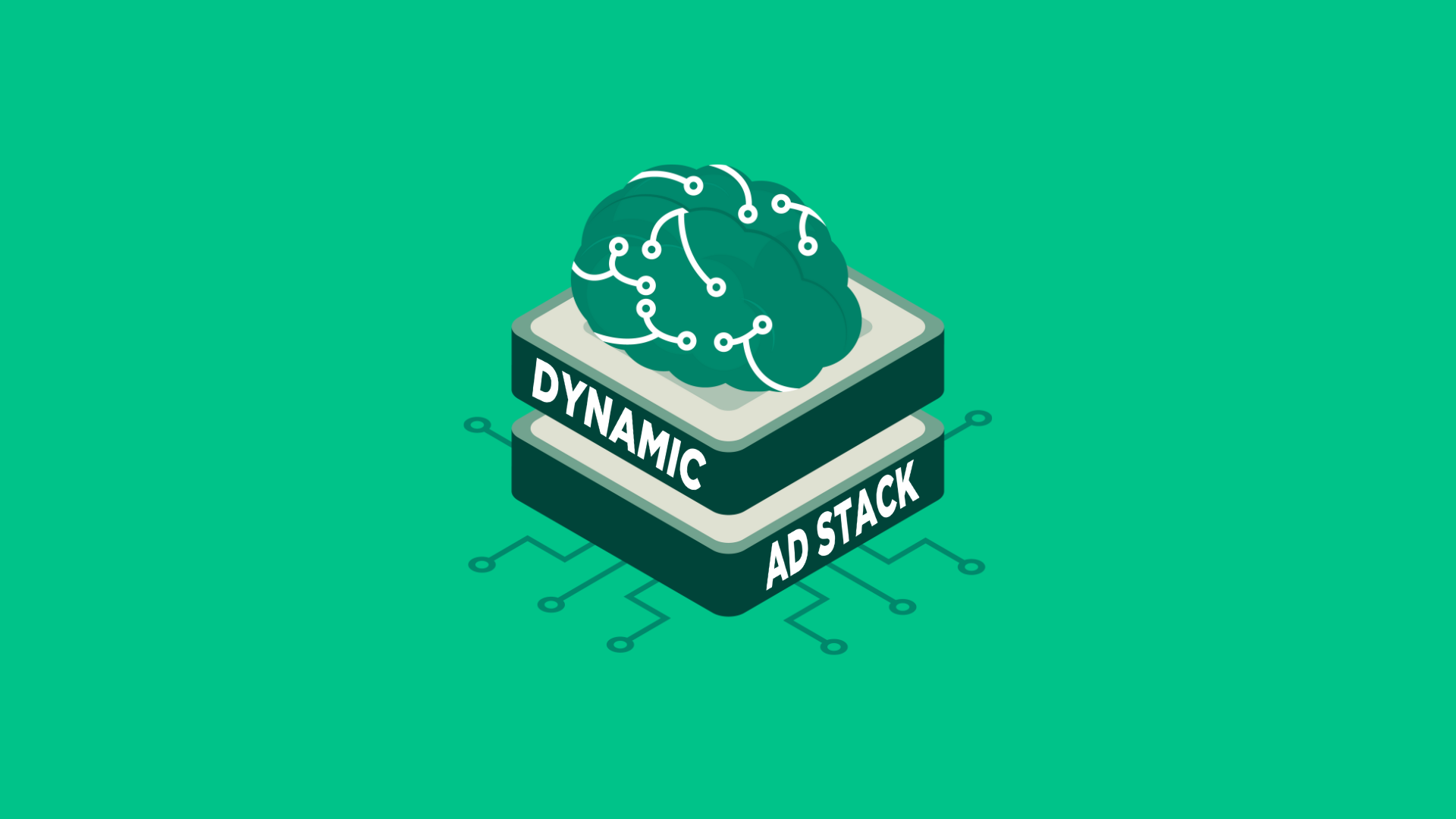In June 2021, Google began the process of deprecating its SPM program in favor of a new MCM program. The deprecation process was finalized last year and any publishers who were previously on SPM have since transitioned to MCM. This program was developed to give publishers more control and transparency into their ad monetization.
We’ll break down the differences between the programs and its impact on publishers.
What was Google SPM?
Google SPM (Scaled Partner Management) was a program Google introduced to allow small and mid-sized publishers access their Google Ad Exchange network. This program works by:
- Allowing a large publisher or monetization partner with GAM 360 (Parent publisher) to provide a smaller publisher (Child publisher) access to their AdX demand.
- Providing the child publisher use of the parent publisher’s account to expose their inventories to thousands of new advertisers.
In the end, parent publishers were able to extend their services and increase their access to inventory; while child publishers were given access to more quality demand through arguably the best ad exchange available. Generally, this relationship via SPM led to increased revenue for both parent and child publishers – a real “win-win”.
Why did Google MCM program replace Google SPM?
On February 1, 2022, SPM was officially retired and replaced by Multiple Customer Management (MCM). Despite Google SPM providing significant benefits to small and mid-sized publishers, there were a few issues that Google wanted to address:
- Harder to Add New Features – SPM was developed when Google Ad Exchange and DFP (Doubleclick for Publishers, now GAM) were separate products so creating new features that worked between them was difficult.
- Less Functionality for Managing Publisher Permissions – The options for permissions were limited and not as robust as they could have been.
- Less Transparency for Publishers – The program lacks transparency because Parent publishers had full access to their Child publishers’ inventories and managed them entirely on their behalf. Child publishers’ needed to fully trust in their Parent publishers having their best interests.
- Less Access to Ad Management Features – Child publishers had access to few, if any, yield management features.

What is Google MCM?
Google MCM (Multiple Customer Management) is a feature within Google Ad Manager 360 which allows smaller publishers to access Google AdX through a third-party Google partner. The partner(s) can also consult, represent, and manage networks or inventories on behalf of the publisher. This establishes a parent-child relationship.
In Google MCM, the “Parent publisher” refers to the third party advertising technology company or channel partner with access to Google AdExchange; while “Child publisher” refers to an entity that would enter into the program to have their inventory managed.
MCM Delegation Types
The MCM delegation types distinguish the nature of the relationship between the parent and child. There are two delegation types in MCM:
- Manage Account – Manage Account delegation allows the publisher (child) to delegate some or all of its management responsibilities to other Google Ads accounts. This allows for more streamlined management of multiple accounts by allowing for different users to be responsible for different aspects of account management.
Account delegation can be set up to give different levels of access to different users. For example, a user can be granted access to view the data and reports of an account, but not make changes to the campaigns or budgets. Or, a user can be given full access to manage campaigns and budgets, but not have access to billing information. - Manage Inventory – Manage Inventory delegation grants Parent publishers access to ad requests and inventory that the Child publisher has sent to the Parent account. With this model, Parent publishers handle ad trafficking and can have up to 15 MCM partners. They also have a more limited level of access to the Child’s GAM account than the Manage Account delegation.

Why Use Google MCM Program?
With MCM, publishers have:
- Access to exclusive Google demand through AdX – Publishers who don’t have their own GAM 360 can take advantage of the Parent publisher’s account.
- Access to Google’s Open Bidding – Child publishers can have additional demand from other ad exchanges through Google’s open bidding. Open bidding offers reduced page latency, simple payments and reduced technical know-how.
- Access to ad blocking – Google Ad Manager 360 has additional tools to review, identify and block unwanted ads.
- Access to Programmatic Direct deals – Programmatic Guaranteed and Preferred Deals are supported by MCM, creating another source of ad revenue and potentially high CPMs.
- Unlock third-party ad management & AdOps – Child publishers on the MCM program can easily outsource a portion or all of their ad ops to a third-party while still maintaining control over their ad set up.
How can I access Google MCM Program?
Google’s MCM program has specific criteria for publishers looking to join. The criteria includes:
- Google must verify your website
- No copyright infringement violations
- Your website should not be promoting sensitive content (adult, violence, gambling, etc.)
- Your site needs to have a valid ads.txt file
As a publisher, there are two ways to access Google MCM:
- Option 1: Directly by the publisher. Publishers looking to join the MCM program must qualify for certain terms and conditions. The approval process can take approximately two weeks. The downside of a publisher doing it themselves is the difficulty of managing all the aspects of MCM.
- Option 2: Through a MCM program partner. If you’re publisher with a small team or limited resources, going through a MCM program partner like Freestar may be the best option. Freestar would provide the support and manage your account for you and this also includes direct deals.
Start Monetizing with the Best MCM Partner
Google Ad Exchange is widely considered to be one of the best, if not the best, marketplace in the digital advertising ecosystem. However, it’s not easily accessible to all publishers due to Google’s processes and undisclosed eligibility requirements. An MCM partner can help you overcome those roadblocks, and take you even further by helping you maximize your inventory.
As a Google MCM program partner, Freestar can invite publishers to Google’s MCM and provide a fully-managed ad monetization and ad ops solution. You can contact us to start the process. We’d be happy to answer your questions and tell you more about how MCM could work for your website.




